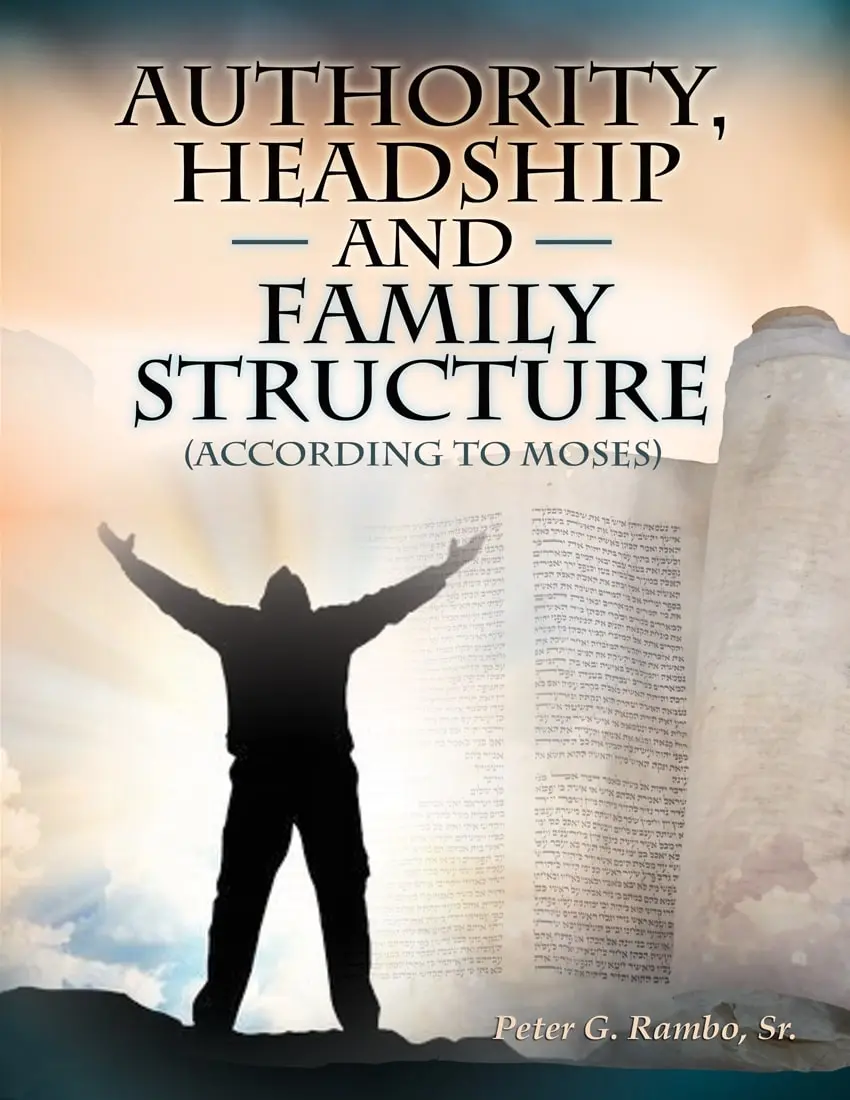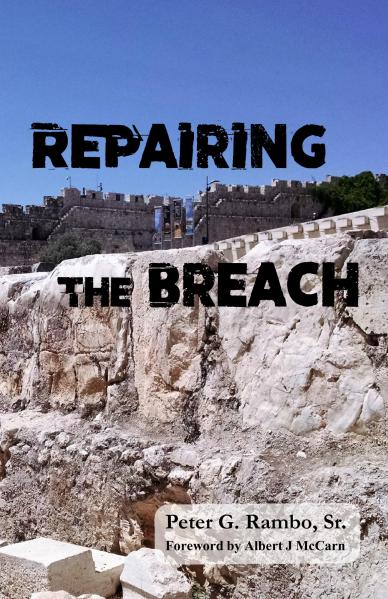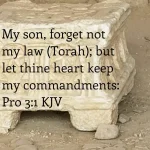I’m on whopping page 39 of Tim Hegg’s  Fellow Heirs and already have dozens of margin notes and thoughts. While some come directly from his writing, others not necessarily related to his topic have been generated by something he says. This is one of those thoughts…
Fellow Heirs and already have dozens of margin notes and thoughts. While some come directly from his writing, others not necessarily related to his topic have been generated by something he says. This is one of those thoughts…
Now, before I lay this thought out there, I have to state clearly, I am NOT unfairly addressing the Rabbis. I am an “equal opportunity offender” and have dressed down many Christian theologians, Reformers, translators and doctrines. So, in addressing something with the Rabbis, it is not personal, just the business of seeking truth! Fair?
Hegg, on page 21 said,
The Sages, following the destruction of the Temple, ruled that in lieu of the sacrifice an equivalent payment of money was required: “Our Rabbis taught: A proselyte in these days has to put aside a fourth [of a denar] for his sacrifice of birds. Said R. Simeon: R. Johanan b. Zakkai held a vote on this rule and abolished it for fear of misuse. Said R. Idi b. Gershom in the name of R. Adda son of Ahaba, The decision is according to R. Simeon.” Once again, the fact that a Sage of the stature of Johanan B. Zakkai should seek to abolish the halachah because he saw it as potentially dangerous, should tell us that this requirement was also in some state of flux before the destruction of the Temple. [Rabbinic quote footnoted from b. Keritot 9a in Fellow Heirs, by Tim Hegg]
Those two mentions of ‘abolish’ in regard to halachah hit me like a bolt of lightning! Of course! Halachah can change and is therefore decidedly unlike the everlasting unchanging Word of God. It is man’s translation/understanding married with some form of application.
I defy anyone to show me where the written Torah of Moses has been abolished! Yet, I would guess, fairly simple research into both Christendom and Judaism will quickly reveal a laundry list of changing doctrines and halachah. This immediately begs the question: “If the halachah can be abolished/changed/altered, can it possibly have any binding authority?” That is not to say that all halachah is bad, simply that none of it can be given the weight of ‘Thus Sayeth the Lord’ unless it is a direct quote from Scripture. Most halachah is, by definition, shifting sand, rather than the solid rock of Torah our Messiah warned us to stand on! (cf. Matthew 7:21-29!!)
All that takes us back to the discusson of the ger and Israel at the foot of Mt. Sinai. Can we really anachronistically apply the ideas of Second Temple Judaisms proselyte to the ‘ger?’ No. Of course not! When we do we redefine Scripture in the image of a changing halachah from 1000+ years later. The Apostles were stripping the onion clean of layers of tradition, and were hated for it. When the Messiah returns, He will do the same thing completing the job that He seems to be doing by His Spirit as many Jesus/Yeshua believing Gentiles are coming to the Torah.
We must lovingly, and by the Spirit, shed every layer of tradition proved to be false as we dig for the original intent of the Author at Mt. Sinai when He called a mixed multitude and the children of Israel into covenant. Elsewhere, Hegg writes,
But foreigners were also part of the designation “children of Israel.” The Exodus narrative is clear that a “mixed multitude went up” from Egypt (Exodus 12:38), a designation that envisions both native-born and foreigner together. Yet the text never uses the term “mixed multitude” to designate the people whom God had redeemed: always “the children of Israel” or “Israel” are the object of God’s redemption from Egypt’s slavery: “And on that same day the Lord brought the sons of Israel out of the land of Egypt by their hosts” (Exodus 12:51). (Ibid., 31)
Every one of us, Jew and Gentile alike, must be willing to re-evaluate the things we have been taught in the Light of the Word, and, when necessary, completely bypass teachings from the last 1700+ years to return to the root… or, when necessary, bypass even more… Go back to Moses without the filters!
Blessings!




















































































































Kinda like how folks wanna redefine the constitution with the ‘it’s a living document’ -we must doctor it up to be relevant today bunk
LikeLike
Ding, ding, ding!!
LikeLike
Yes Brother Pete, that is exactly what we are to be doing !!!
This is the final showdown, between the WORD OF YHWH and superstition and error.
Gird your loins, the battle is on. As we shine light on the Beast,
She will react and that with signal violence.
Two religions on Earth. Israel and Babylon !!!
LikeLike
Actually, this is a more difficult concept than it appears on the surface. Several days ago on my own blog, I quoted Rabbi Kalman Packouz at Aish.com who, commenting on Torah Portion Re’eh, said in part:
My follow up comment on my blog was:
While the whole world of halachah and midrash can be a very tricky path to walk, comparing Talmud to the U.S. Constitution actually isn’t a bad metaphor. If we couldn’t amend the Constitution, then we’d have to draft an entirely new one every so many years as new circumstances occurred that didn’t fit within the conceptualization of the original writers.
From a Talmudic point of view, no one is changing the Torah at all, but rather interpreting it for new circumstances. Can a Jew drive a car on Shabbat? How about operate a microwave oven? Those devices weren’t around when the Torah was originally given so someone has to have the authority to interpret the Torah in order to answer those questions.
While I respect Tim Hegg as a scholar and a human being (he’s been very gracious to me on those few occasions when we have met and I’ve spent Erev Shabbat in his home), he is basically a Baptist and holds the classic Fundamentalists doctrines of Calvinism and Biblical Sufficiency to heart. Thus his perspectives on the Bible are going to be more classically Christian than Jewish, and thus his attitudes regarding the Rabbinic sages, Talmud, halachah, and midrash are (in all likelihood) going to follow along those lines.
LikeLike
Oh, one more thing:
I’d like to suggest that doing without filters is humanly impossible since no person exists without biases. No human being as unfiltered access to God’s will and intent. The fact that the Bible is written in a human language is a filtering mechanism and, since most of us can’t read the original languages, that’s another one. Add to the fact that none of the actual original documents exist and what we have are (in some cases very old) copies, and that’s a filter. The doctrine and theology you possess is a filter. Only God has unfiltered access to His own mind.
LikeLike
I hear what you are saying and agree in principle with much of it, but keep going back to the same question I have asked over and over (not necessarily of you): How much authority does the Oral law have? Yes, I agree, there are some things that were clearly given as oral instructions, but precisely because God did not have them written should tell us that the intent was that though they are necessary, they may be changing, and cannot, by definition of being unwritten, hold the same authority as the Written Word.
Further, just as you like to point out ‘anachronistic error’ by trying to apply ‘wilderness Torah’ to 20th Century, the exact same error can be applied in reverse. And here is where the now written oral traditions (Talmud), intended to remain oral (I presume), take on an authority greater that the original intent.
Now, reference the quote in your previous comment concerning shechita. That particular instruction is not necessary until a) there is a Temple/priesthood in place, or b) the Moshiach returns. (Ez. 43-45 seems to cover that eventuality.) Most other instructions in the Torah are plenty clear to be understood and walked by the leading of the Spirit. Do we really need a list of do’s/don’t for Shabbat that are classified as ‘Law,’ or should we rather view those 39 categories as recommendations/examples that each of us should be personally convicted of according to the Spirit, not by imposition of man? If I carry a needle in my pocket is it sin? According to whom? (Or, better yet, if a Jew carries a needle is it sin? Again, according to whom? A Tailor can leave the needle at home and still think about work, thus breaking the spirit of the Law, while he can also carry a needle, not think of work, and fulfill the letter and the spirit of the law…. And where does that leave the halachic ruling? Mere tradition.)
Halachah is a good guideline/recommendation, but it is not and can never be ‘Law.’
As to Hegg’s theological background… You, yourself would agree that there is value in Christendom. Certainly, I have asserted plenty of times that I think the correct path/course to chart is between Judaism and Christendom. Thus far I have found Hegg to chart a theologically sound course that navigates between the ‘issues’ both camps have.
The journey is fun, and I enjoy dialoging. Thanks!!
LikeLiked by 2 people
It would help if I had a Jewish understanding of why God had some Torah written and some Torah oral, but just off the top of my head, I’d have to say that you’re making an assumption about the quality of commandments based on whether they were recorded in writing or passed on orally.
I agree that the sages are guilty of what I call “the Rabbinization of Abraham” where they impose Talmudic principles and midrash back into the Bible (such as Jacob studying at the Torah Yeshiva of Shem between the time he fled Canaan to get away from Esau and the time he arrived at the household of Laban). Nevertheless, I don’t think we should throw out the baby with the bathwater.
You’re assuming that one only kills an animal in the manner of shechita for the express purpose of making a sacrifice at the Temple. However, according to Wikipedia:
And according to Chabad.org:
Clearly, at least in post-Temple times, the Jewish people (those who formally keep kosher) employ the term shechita to the method of killing any kosher animal for food. Thus, since the method is not described in the written Torah, the only source of how to actually do this is with the Oral Law.
And even if you’re right and this method is used only upon animals to be sacrificed at the Temple, then Oral Law still had to apply for the forty years in the desert with the Tabernacle, throughout the existence of Solomon’s Temple, when it was rebuilt in the days of Ezra and Nehemiah, and in Herod’s Temple (when it wasn’t defiled by the Greeks), and thus only the Oral Law told the Priests how to perform this form of slaughter.
And since I believe there will be a Temple in Messianic Days and since I believe that there will be sacrifices offered by the Levitical priests in those (future) days, then, even if you are right, the Priests will only have the Oral Law to guide them on how to make the animal slaughter.
That statement is full of trapdoors since I know more than a few believers who interpret their internal emotive states as the leading of the Holy Spirit or, as we used to say in the ’60s, “If it feels good, do it.”
You ask if we really need a list of do’s and don’t for Shabbat for example. To the degree that Gentiles, most of whom have absolutely no background in Judaism or the practices of the Biblical Israelites are attempting to “observe Torah” ostensibly by imitating modern Jewish halachic and synagogue practices (wearing kippot, tallitot, lighting Shabbos candles, buying kosher meat, using a modern siddur, shokeling while davening, and so on), I question whether these folks are performing “Biblical Torah” or observing Torah “by the Holy Spirit” as opposed to either selecting which modern Jewish methods they wish to employ in their observance and/or making up their own personal or group “halachah” as they see fit.
I should point out that most (but not all) Messianic Jews (as opposed to Gentiles) and Messianic Jewish organizations I’m aware of practice a combination of Reform and Conservative halachah, so I don’t know of Messianic Jews (at least in the U.S. and Canada) who would avoid carrying a pin (or whatever) from one domain to another or avoid writing more than a certain number of strokes on Shabbat. That said, I know a great many who won’t cook or drive on Shabbat.
Also, entering the world of Judaism without Messianics, my personal observation is that not all Jewish people are perfectly observant all of the time. This doesn’t invalidate the halachah but it does point out that people are not perfect and that we don’t always uphold the principles to which we subscribe.
Admittedly, different Jewish communities employ a certain amount of variance in observance although there is a great deal of overlap. My point is that the Jewish people have been the keepers of halachah and Torah observance for the past 3,500 years or so. What gives a bunch of “johnny-come-lately” Gentiles the right to waltz in and say A) We’re also obligated to Torah in the manner of the Jews, and B) We get to make up how we are observant?
Torah observance is a deeply nuanced topic and a lifestyle I find that most non-Jews, even in Hebrew Roots, don’t really want to practice. I do find that most people prefer to do things their way by saying they’re Torah observant and then making up their own rules about it. You can’t get away from halachah no matter what. Either you observe a standard that has already been created or you make up your own standards. But then how many standards can you make up on your own before you aren’t really observing Torah anymore?
Bottom line, I believe if we focused on performing the weightier matters of Torah, some of which I wrote about in today’s “morning meditation” when discussing the Rebbe (Rabbi Menachem Mendel Schneerson), we would probably serve and please God more than being overly concerned about the few mitzvot that I believe don’t apply to us (tzitzit, tefillin, and so on).
And yes, I enjoy our conversations as well.
LikeLike
And I messed up my blockquote tags. Can you fix?
LikeLike
Yeah. I noticed and already planned to do.
Blessings.
LikeLike
See if that is right. Got to run.
LikeLiked by 1 person
You got it right. Thanks.
LikeLike
Pete, well said, the Bible does not give all the details of many things in life, in fact Love is not defined in the Bible, yet we are commanded to love, and yet there are a million ways it could be applied. Without the Torah giving us those details, are we simply left to the hands of the Oral Torah to define love for us? Or did God give us enough parameters to work within to understand how love works? I think the latter is a more sufficient answer, the Oral Torah could not even contain all the possible ways love could be applied or correctly done.
The scriptures actually do tell us what is required of, in order to eat meat. From the details of clean and unclean animals, to what to do with their body parts and what parts are clean to eat, or utilize for something other than eating, etc.
The scripture states on slaughtering an animal:
The animal must first be put to death, sounds strange, but turns out, even in today’s world, there are people who eat animals while alive, also there have been people who will take a limb off an animal, patch up the animal and eat the limb. Because they have no way of preserving the meat, thus the animal lives on, with one less limb, this is against the commandments and cruel. But it also goes against eating an animal that is still alive while eating on the animal. Sounds gross, but it does happen still today… (Deut 12)
The blood of the animal must be drained out and covered with dirt or poured on the earth like water. (Leviticus 7, Leviticus 17, Deut 12)
Summation:
There is no ritual or indication of a ritual for slaughtering animals, outside of the Temple, only certain commands that must be adhered to, such as putting the animal to death. I have not seen any reason to assume otherwise.. The scriptures allow for the eating of what was hunted and fishing, as well as, cattle. Which involves various ways of killing an animal, all in accordance with the Torah.
Sometimes man likes to make things harder than they are… We see an example of this when Yeshua is correcting some false doctrines and theologies that were taught to the people from their leaders in Matthew 5, “you have been told”… but “I tell you”, correcting these false understandings. We see another example in Matthew 23, where Yeshua describes the yoke of the Pharisees and Scribes, to be very burdensome, as opposed to God’s yoke or Yeshua’s in this case.
** We still buy kosher certified meat when we can, because it is a well done process, with a very humane practice, but it revolves around a ritual process and not required to be kosher according to the scriptures.
LikeLike
I consider it sin to break written torah, but not sin on oral torah. Oral is good guideline, but it does not have the authority to define sin. I think that is a key point.
LikeLiked by 1 person